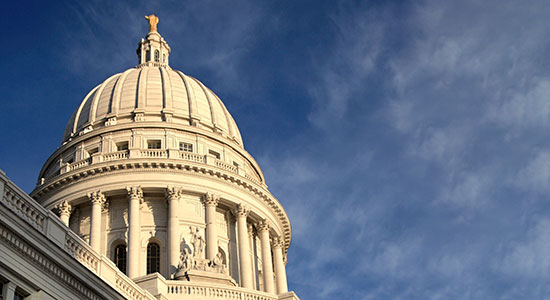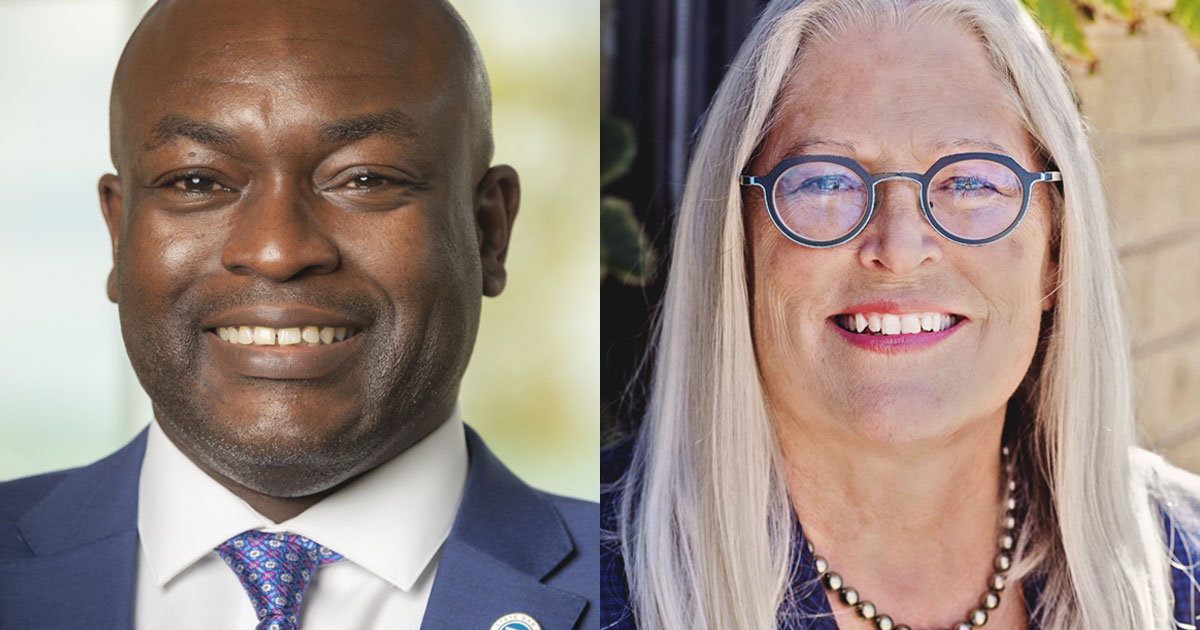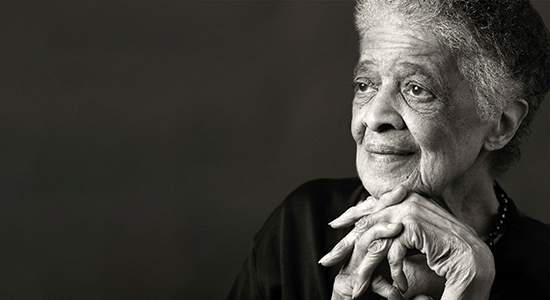Did You Know?
Lawyers in the Legislature

The Wisconsin Legislature began its 2021-22 legislative session last month.
As noted in January’s Rotunda Report, a publication of the State Bar’s Government Relations Program, “with sizeable majorities in the Senate and Assembly, Republicans will have considerable control over the legislative agenda.”
However, “a very tenuous and shaky relationship with Governor Evers and the Executive branch over dealings with the COVID-19 pandemic will likely temper expectations for any sizeable policy victories,” wrote Government Relations Coordinator Cale Battles.
The 2021-22 Wisconsin Legislature includes 12 attorneys, nine in the state Assembly and three in the Senate. They are:
Senate
Lena Taylor (D-Milwaukee)
Kelda Roys (D-Madison)
Eric Wimberger (R-Green Bay)
Assembly
Ron Tusler (R-Harrison)
Cody Horlacher (R-Whitewater)
Daniel Riemer (D-Milwaukee)
Marisabel Cabrera (D-Milwaukee)
Evan Goyke (D-Milwaukee)
Gary Hebl (D-Sun Prairie)
Jimmy Anderson (D-Fitchburg)
Thaddeus “Tip” McGuire (D-Somers)
Steve Doyle (D-Onalaska)
Got a Nugget to Share?
Send your ideas for interesting facts, trends, tips, or other bits and bytes to wislawmag@wisbar.org, or comment below.
By the Numbers
$28,300
– The national average annual tuition to attend a public law school in the U.S. as an in-state student. That does not include books, room and board, miscellaneous expenses, transportation costs, and loan fees.
The esstimated cost to attend the U.W. Law School is $50,807 (tuition and expenses) per year for an in-state student for 2020-21.
Private U.S. law schools charge an estimated $50,000 in tuition per year, not including other costs.
Marquette University Law School estimates that it will cost $69,078 per year to attend in 2021-22, with tuition ($49,710) and other costs.
Other national statistics:
- Law school tuition rates have increased by 579 percent over the past 35 years.
- The average starting salary for a law school graduate working in the public sector is $56,900.
- The average starting salary for a law school graduate working in the private sector is $91,200.
- The U.S. Consumer Financial Protection Bureau recommends people pay 10 percent of gross income toward paying off debts.
- If the average lawyer working in the public sector pays 20 percent of income toward law school debt, it will take 26 years to pay off.
Source: Educationdata.org; Marquette Law School; U.W. Law School.
On the Radar
Ohiku and Hickey Vie for State Bar President

The State Bar of Wisconsin’s election cycle is in full swing. Odalu Ohiku and Margaret Hickey are vying for the president-elect position, a one-year term before serving a one-year term as president.
In April, the State Bar membership will elect a president-elect, as well as other officer positions, including a State Bar treasurer and a Judicial Council representative. Those elected will take office at the start of the fiscal year, July 1, 2021.
The State Bar’s Nomination Committee has tapped Hickey and Ohiku, both of Milwaukee, as candidates to ultimately lead the organization.
The Nomination Committee customarily chooses candidates in a rotation between Madison, Milwaukee, and the pool of candidates in greater Wisconsin. Whomever is elected will succeed Cheryl Daniels, who takes over as president on July 1.
Ohiku, a long-time solo practitioner in criminal defense, is now the deputy city attorney in Milwaukee. Hickey is a partner and litigator at Becker, Hickey & Poster S.C., which focuses on elder and family law.
To learn more about the elections, visit WisBar.org/elections.
Good Idea
More COVID-19 Vaccination Guidance for Employers

Late last month, the Centers for Disease Control (CDC) released a COVID-19 Vaccine Communication Toolkit for employers of essential workers.
“Essential workers perform duties across critical infrastructure sectors and maintain the services and functions that U.S. residents depend on daily,” the CDC noted.
The communication tools include sample introductory letters, key messages, FAQs, posters and flyers, facts about vaccines, newsletter content, sample letters to employees, and social media content.
Front-line essential workers are in line to receive vaccinations as part of Phase 1b, which also includes people age 75 and older. According to the Wisconsin Department of Health Services, adults ages 65 and over were eligible to receive vaccinations starting Jan. 25, but the rollout is a moving target.
Next will be Phase 1c, recommended vaccinations for persons aged 16-64 with high-risk medical conditions and essential workers not recommended for vaccination in Phase 1b.
Among the recommended group for Phase 1c are “workers supporting the operations of the judicial system, including judges, lawyers, and others providing legal assistance.”
CDC Toolkit
Tech Tip
Don’t Ignore Operating System Software Updates

Do you ignore the pop-up windows telling you operating system software updates are available to download? It can be easy to dismiss those reminders, but think again.
Operating system software updates typically address vulnerabilities that could cause issues with or provide opportunities for hackers to gain access to the operating system. In some cases, software updates can address vulnerabilities or weaknesses in the operating system coding that have existed since the product became available.
To learn more about the software patches and vulnerabilities being addressed, review the details in the pop-up window prompting the update. If you would like to review the updates in a different light, consider some popular websites.
Krebsonsecurity.com publishes articles regarding Microsoft updates, and MacRumors publishes blogs regarding Apple updates.
If you have questions, call the State Bar of Wisconsin Practice411™ for a confidential consultation, (800) 957-4670.
Quote
“Today we marked the swearing-in of the first woman in American history elected to national office: Vice President Kamala Harris. Don’t tell me things can’t change.”

– U.S. President Joseph R. Biden, in his inauguration speech last month.
Harris, a lawyer, is also the first woman of color to hold the office.
Vel Phillips broke similar barriers as the first African-American and woman elected to a statewide constitutional office as Wisconsin’s Secretary of State in 1978. She was also the first African-American judge in Wisconsin (1971), among other firsts.
Last month, on Martin Luther King Jr. Day, the State Bar of Wisconsin and its charitable arm, the Wisconsin Law Foundation, pledged their support for a statue of Phillips to be placed on the State Capitol grounds.
The statue of Phillips will be the first on the Capitol Square to honor a person of color.
Source: The White House; WisBar.org
#BlackHistoryMonth
Photo: PBS Wisconsin Image/James Gill, Photographer
